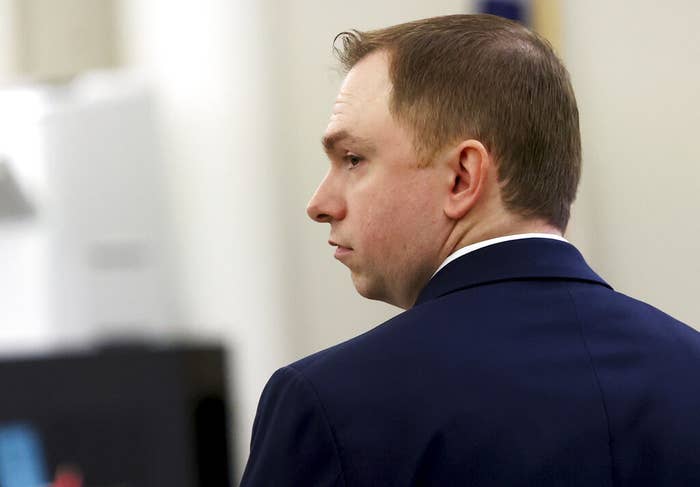
A jury in Fort Worth, Texas, has convicted former police officer Aaron Dean of manslaughter in the fatal shooting of 28-year-old Atatiana Jefferson at her mother’s home in 2019 while he was responding to a nonemergency call about an open front door.
The former officer now faces a sentence of up to 20 years behind bars. He was taken into custody Thursday following the announcement and booked at a Tarrant County jail, according to online booking records.
Jefferson was killed early in the morning on Oct. 12, 2019, after officers responded to a call from her neighbor, James Smith, who had asked for someone to check on the safety of the Jefferson household after Smith spotted the door open.
At the time, Jefferson was playing video games with her 8-year-old nephew, and they heard what they thought was a prowler near their window, according to the family's attorney, S. Lee Merritt.
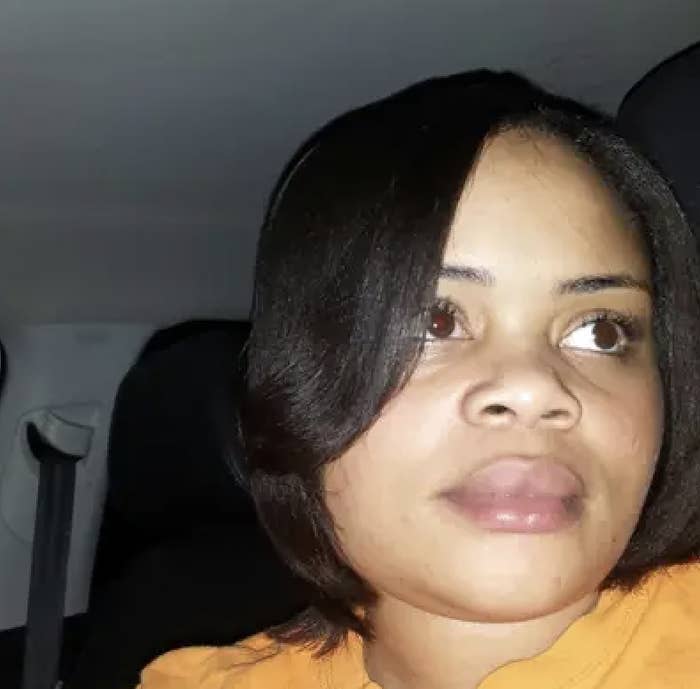
Body camera footage showed police walking around the property in the dark. Dean, who is white, saw a person through the window and fired one gunshot, killing Jefferson, police said shortly after the shooting occurred.
The video showed Dean yelling, "Put your hands up, show me your hands," then firing his gun. The entire exchange lasted less than four seconds. The officer does not identify himself as a police officer in the video.
According to an arrest warrant affidavit, Jefferson told her nephew she heard someone outside moments before the shooting, so she got her handgun from her purse and pointed it out a window.
Two days after the shooting, Dean resigned from the department, and just hours after his resignation, he was arrested and later released after posting a $200,000 bond. Two months later, Dean was indicted on murder charges. Dean, now 38, had pleaded not guilty in this case.
The much-anticipated trial began with jury selection in November after being delayed multiple times. The jury of 12 people plus two alternates included eight men and six women, none of whom were Black. Jurors had the option to find Dean guilty of manslaughter instead of murder in their deliberations.
Despite the guilty verdict, some of Jefferson's supporters felt that justice was not served. Immediately following the announcement, a woman could be heard repeatedly screaming, "It was murder!" in the courthouse hallway.
"Manslaughter is not enough," Michael Bell told KXAS-TV. "He’s still convicted of a crime, which is major in Tarrant County. ... But he has not, he should have been found guilty of murder and there's no reason for him not to be found guilty."
The jurors heard from witnesses, experts, and members of Jefferson’s family. Key questions throughout the trial were whether Jefferson was justified in pulling her gun from her purse and whether Dean saw Jefferson’s gun before he shot her.
One of Dean’s defense attorneys, Miles Brissette, said during opening statements that Dean saw a silhouette of someone holding a gun in the window. The weapon, according to Brissette, was pointed directly at Dean.
Prosecutor Ashlea Deener said that “he did not see the gun in her hand,” according to ABC News. “This is not a justification. This is not a self-defense case. This is murder."
The prosecution has argued that Jefferson did not know who was outside of her home and, thus, was justified in grabbing her gun to protect herself and her nephew.
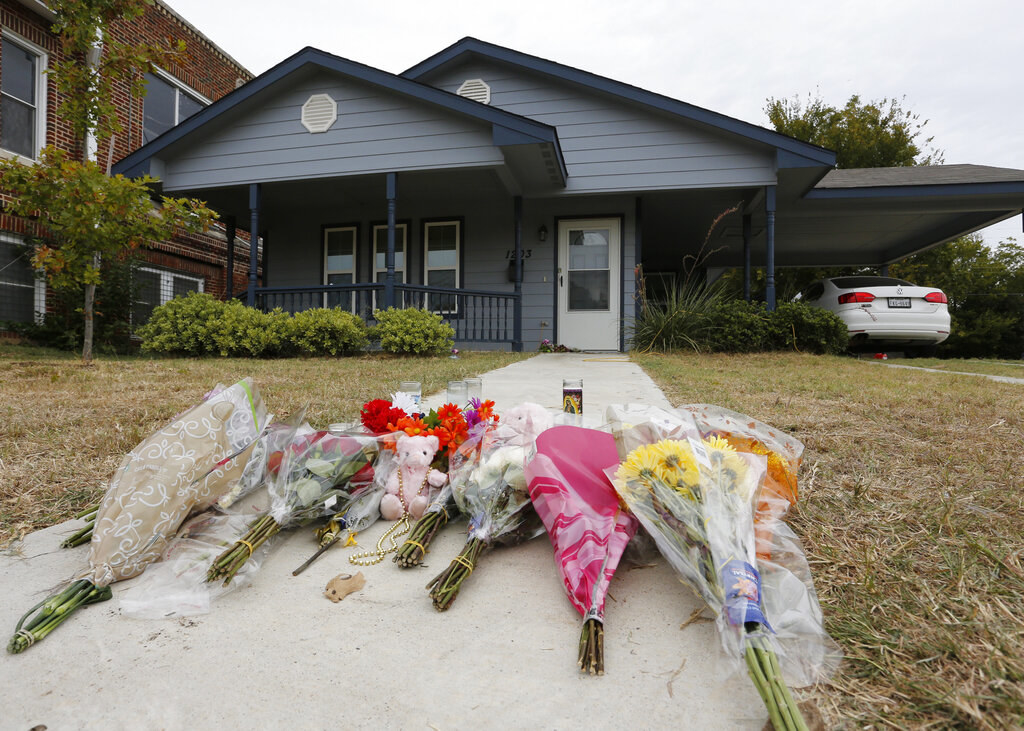
During the trial, a Fort Worth police officer who was with Dean that night, Carol Darch, testified.
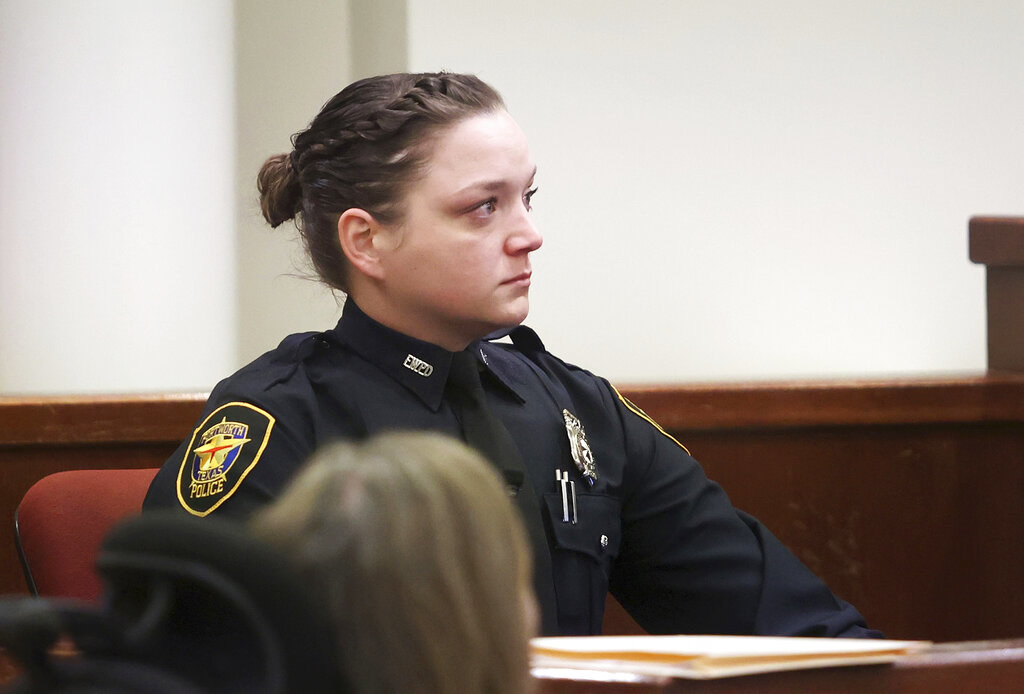
Darch said that Dean didn’t say that Jefferson was holding a gun before he pulled the trigger and never mentioned the weapon before searching the house. (Darch did, however, acknowledge that she has some memory problems because of two strokes she has suffered since the Oct. 12, 2019 incident.)
She told the jury during her four-hour testimony that she and Dean had initially thought that maybe the home had been burglarized, so they had gone to the backyard with their guns drawn to look for any sign of a forced entry.
Darch claimed that as she scanned the garden, she heard Dean yell and fire the shot before she could completely turn around.
In the bodycam footage, which was played during the trial, neither Dean nor Darch identified themselves as police officers.
Darch also admitted that neither she nor Dean gave lifesaving aid to Jefferson as their primary concern was Jefferson’s young nephew, Zion Carr, who had just witnessed the death of his aunt.
Carr, who is now 11, also testified during the trial. Though he had previously said that his aunt had pointed the gun up “a little bit,” Carr, who suffers from post-traumatic stress disorder from witnessing the shooting, testified that the gun was down.
“She just held it next to her side, she just like, she didn’t point it up, she just kept it next to her,” he testified this month, adding that after she was shot, his aunt was “crying and just shaking.”
“I was thinking, ‘Is it a dream?’” Carr said, according to USA Today.
Dean’s defense attorneys questioned Carr on his recollection of an interview he gave the day after his aunt was killed, where he had allegedly said that she had raised the gun. Carr said that he does not remember the details of what he said during that interview.
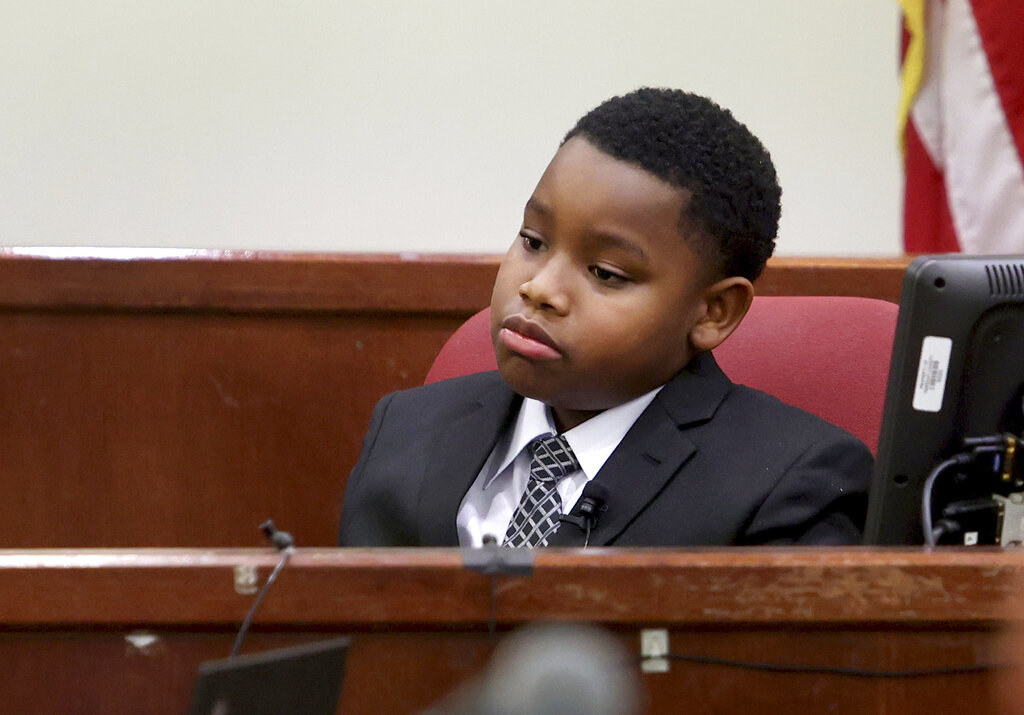
On the fourth day of trial, Dean himself took the witness stand. “The jury needs to hear from me and hear the truth,” he told the court.
Dean explained that when he got to Jefferson’s house, he thought the house had been burglarized.
“Objects were strewn about all over the floor. It looked ransacked. It was a mess. Kitchen drawers were open... it looked like someone had gone through looking for items to steal,” Dean said.
When Dean saw the silhouette of an adult in the window, he said that he thought Jefferson was a “burglar,” so he “straightened up and drew [his] weapon ... and then pointed it toward the figure.”
The former officer insisted that Jefferson was pointing a gun at him before he fired.
“As I started to get that second phrase out, ‘Show me your hands,’ I saw a silhouette,” Dean said. “I was looking right down the barrel of a gun, and when I saw the barrel of that gun pointed at me, I fired a single shot from my duty weapon.”
During cross-examination, Dean admitted that his actions on that day were “bad police work,” as he failed to tell his partner he saw a gun and fired without seeing her hands.
According to prosecutors, Dean was only on the scene for one minute and 17 seconds before he shot Jefferson.
In closing arguments, prosecutors portrayed Jefferson as someone who was defending her home and nephew.
"You can be in your own home, owning a weapon, owning a gun, and you can protect yourself in your home. That's one of the most fundamental rights. That's the reason we all feel so safe," prosecutor Ashlea Deener told the court. "Atatiana Jefferson didn't commit any criminal acts by walking up to the window with her gun thinking someone was outside. It's what many of us would do if we were in our house in the middle of the night in the back bedroom and we hear somebody outside."
During closing arguments, defense attorney Bob Gill told the court that “a tragedy doesn’t always equal a crime, it doesn’t always equal a law violation.”
Gill focused on the narrative that Jefferson pointed her gun at Dean and that he had the right to self-defense.
“She pointed a firearm at a Fort Worth Police officer…the rights stop there,” he said. “It’s a crime, and it’s an unlawful act.”
The jury began deliberating on Dec. 14 after six days of testimony.

